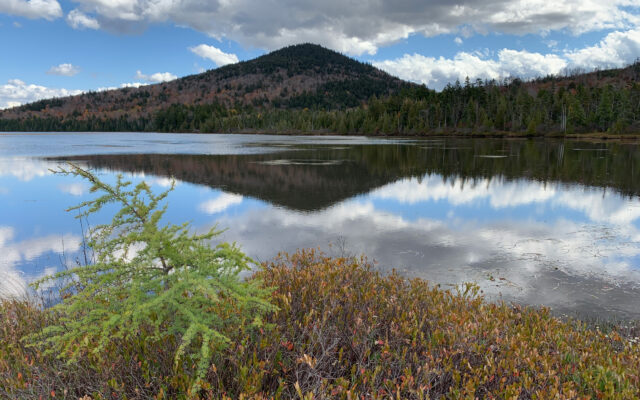
Mining in the Katahdin region could endanger Maine’s outdoor economy
By Jen Brophy and Igor Sikorsky
As longtime owners of sporting camps in Maine, we know the deep connection that a clean and healthy environment has to the state’s economic success.
Maine’s North Woods are the backbone of a booming outdoor recreation economy. Businesses like ours — and the jobs they support — depend on the region’s crystal-clear waters and remote forestlands.
The Katahdin region also includes outstanding habitat for a wide array of animals, including moose, grouse and brook trout. It is the homeland of the Wabanaki people who continue traditional practices, such as sustenance fishing and hunting, on these lands. Residents and visitors cherish fishing on our lakes and streams or hunting and hiking across our lands.
We cannot afford to put this unique place at risk with a mine.
We believe the Land Use Planning Commission must reject Wolfden Resource’s proposed rezoning change to allow the company to develop a metal mine near Pickett Mountain and Mount Chase.
Metal mining is a boom-and-bust industry with a long record of polluting the water and leaving taxpayers to pay the cleanup costs in Maine and elsewhere around the country. For example, more than 40 years after the Callahan mine in Brooksville shut down taxpayers are still footing the bill for its cleanup. We don’t want that to happen in the Katahdin region.
Mining can also be economically unsustainable because mining jobs disappear when mining ends. In contrast, Maine’s world-famous outdoor brand supports long-term jobs in fishing, guiding and tourism.
Sporting camps and other outdoor recreation businesses rely on thoughtful planning and zoning from the Land Use Planning Commission to protect the resources on which they depend. Allowing a mine to threaten outstanding brook trout fisheries like those in Pleasant Lake, Mud Pond and Grass Pond (all of which are State Heritage Fish Waters) is not a good risk. These are exactly the sorts of resources, which belong to all Mainers, that the commission must protect with its zoning authority.
It doesn’t make sense to let a company with no metal mining experience, and no apparent financial ability to develop and clean up a mine, operate next to such important resources.
We believe the commission needs to stop this proposal now. Whether it’s Wolfden’s error-ridden applications, its disrespectful comments on tribes in Maine or its unsatisfactory claims about how it will treat wastewater, Wolfden has shown it can’t be trusted.
Maine’s tribes and many other organizations have worked hard to recover habitat for Atlantic salmon and brook trout. Mining pollution in the Pickett Mountain area, where streams form some of the headwaters of the Penobscot River, could reverse this progress.
The future of Maine’s Katahdin region lies in the beauty and awe of this special place. Casting a line for a brook trout while standing in the rushing waters of a stream. Hearing a loon while sitting on the deck of a cabin on a remote lake. These experiences drive the success of our outdoor recreation economy. It’s a positive future we can all get behind.
The jobs of thousands of Mainers depend on strong protection of our land and water. The iconic Katahdin region is a part of Maine’s brand. We have a collective responsibility to future generations to keep the Maine brand intact.
We urge the Land Use Planning Commission to use its zoning authority to protect businesses like ours and not allow mining pollution to threaten them. We also urge all Mainers who care about the Katahdin region to speak out against Wolfden’s proposal during the evenings of Oct. 16 and 17 at the Stearns High School in Millinocket, or during the evening of Oct. 23 at the Cross Insurance Center in Bangor, where the planning commission will hold sessions for the public to speak.
Brophy is the owner ofRed River Camps in Deboullie Township and Sikorsky is the owner of Bradford Camps on Munsungan Lake.